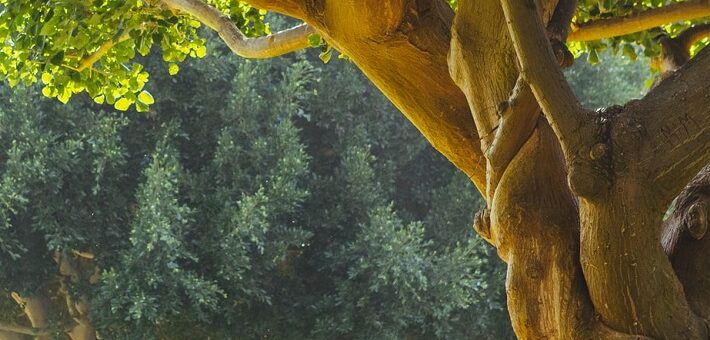Commentary on Isaiah 1:10-18
Isaiah 1:10-18 is the central portion of a covenant lawsuit with which the book of Isaiah begins (1:2-20). The charge against the people and their leaders in this lawsuit is that they are corrupt and unjust in their treatment of the vulnerable (verses 4, 16-17), but that is not the most awful aspect of this charge. What is so appalling to the prophet is that the people have been disciplined for their neglect of God’s commands already, but they are persisting in their rebellious state (verses 5-8).
Despite their continued offenses, the prophet still has hope for the continued relationship between God and the people. In verse 19, God extends the invitation to the people to turn back to the right way and assures them that restoration and renewal can be theirs again: “If you are willing and obedient, you shall eat the good of the land.” Of course, a failure to return to the right path will result in their destruction (verse 20), and that destruction could be as complete as that of Sodom and Gomorrah (verse 9), two cities that were thoroughly destroyed by God in response to their wickedness (Genesis 19:24-29; see also Deuteronomy 29:23).<sup>1</sup> At this point in its history, Jerusalem has not been razed, but the threat inherent in the prophet’s mention of these two cities remains: “If the LORD of hosts had not left us a few survivors, we would have been like Sodom…”
The historical events that provide the context for this reading are most likely the events of 701 BCE when the Assyrian ruler, Sennacherib, besieged Jerusalem and harassed the towns and villages of the countryside. The terrible state of the nation is described in verse 7: “Your country lies desolate, your cities are burned with fire; in your very presence, aliens devour your land.” This is the desolate terrain and the looming threat that is the background of our lectionary reading.
A closer look at Isaiah 1:10-18
Verses 10-18 take God’s lawsuit against the people in a somewhat unexpected direction: God’s rejection of the people’s religious observances. The list of offensive worship practices is comprehensive: burnt offerings of rams, bulls, lambs, and goats; incense offerings; festivals, sabbaths, new moons. The very gestures of prayer are objectionable (“when you stretch out your hands … ” refers to the traditional posture of the prayer in ancient Israel, verse 15). This theme is not unusual in prophetic literature—see Amos 5:21-25 and Isaiah 58:1-9—but what is striking is the thoroughness of the catalog of sacrifices and assemblies and offerings in these verses. The long list seems to function poetically to create a sense of just how burdensome all these endless, empty practices are to God. Their volume is an oppressive weight, and God says, “I am weary of bearing them” (verse 14).
The key to what makes the quantity of devotions so obnoxious to God is found in verses 15-17. Notice how artfully verse 15 is arranged. In its center, we find that the multitude of prayers that the people offer will not have the desired effect. God’s response to these prayers is: “I will hide my eyes … I will not listen.” Enclosing the verse are two lines of poetry, 15a and 15c, that both refer to the hands (using two different Hebrew words). The first line describes hands in the gesture of prayer: “When you stretch out your hands … ” The verse closes: “Your hands are full of blood.” Through the structure of this verse the prophet intimates that the problem with the worship of the people is not the worship itself but the corruption and injustice of the people who offer it. Of course, God’s reaction to blood-stained hands reached out in prayer is fury.
The point of verse 15 is further clarified in verses 16-17, “Remove the evil of your doings … cease to do evil … ” Any hope for the future lies only in the restoration of justice for the defenseless, the widow, the orphan, and the oppressed (verse 17).
In these powerful verses in this first chapter of Isaiah, we see a major theme of the entire book: the special status of God’s people confers both rights and responsibilities on the leaders and the people. When they fail to meet their responsibilities—primarily in the form of justice and protection for the vulnerable—God’s holy presence is roused against them. There is no religious practice that can conceal the corruption of their ethical behavior from God’s eyes. Until their practices are reformed, their future is in jeopardy. Will they become like Sodom, or will Zion be restored?
And there is still hope. The close of this reading that has so effectively communicated the corruption of the people and God’s disgust contains these beautiful and memorable lines: “Though your sins are like scarlet, they shall be like snow; though they are red like crimson, they shall become like wool” (verse 18a). Red was associated with sin, probably because it’s the color of blood, but the sin of the people can be removed. The promise in verse 18 is that God seeks a new beginning for their relationship and that such a thing is still possible. In fact, that is the desirable outcome. But the bloodstained hands must be cleansed. Ethics and worship must again be linked.
Important themes for Christian preaching are present in this reading: sin and forgiveness, God’s call to us to seek justice and to protect the vulnerable, and the meaninglessness of our worship when it is not matched by ethical action. My thought is that this text might present us with the opportunity to consider what our worship and our prayers ought to be and ought to accomplish within us. Isaiah 1:10-18 reminds us that our religious observance is incomplete when it keeps us comfortable and shut off from the needs of the rest of the world. The purpose of prayer is to put us in touch with the heart of God, and God’s heart is attuned to the broken places of the world. An old saying puts it more succinctly, “Never pray in a room without windows.”
Notes
- A wickedness illustrated by their utter disregard for the hospitality and just treatment that they owed the strangers who arrived in Sodom one evening. Sodom and Gomorrah were both wiped out as a result.


October 30, 2022